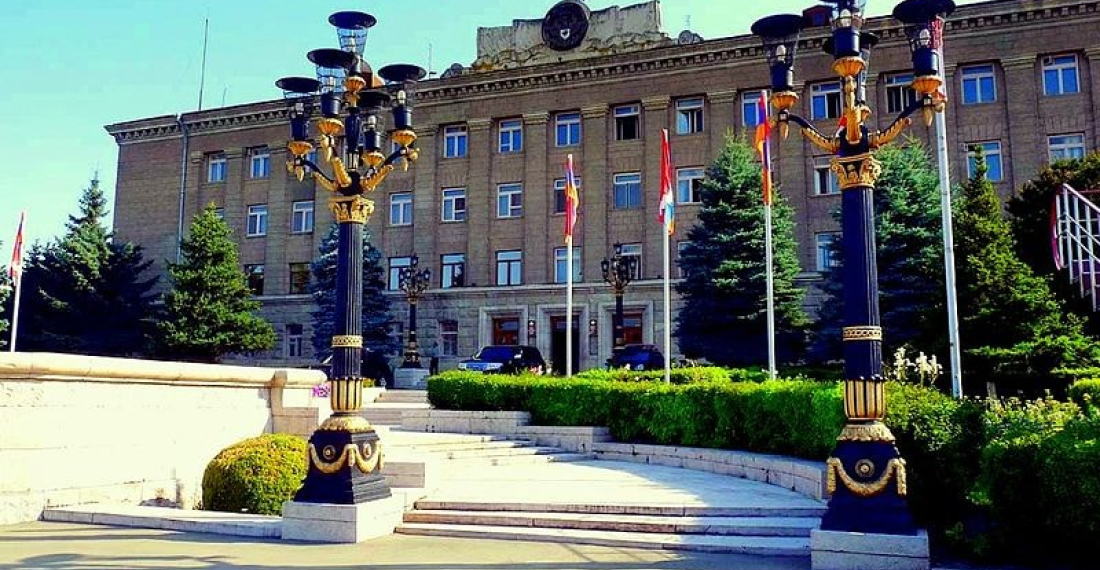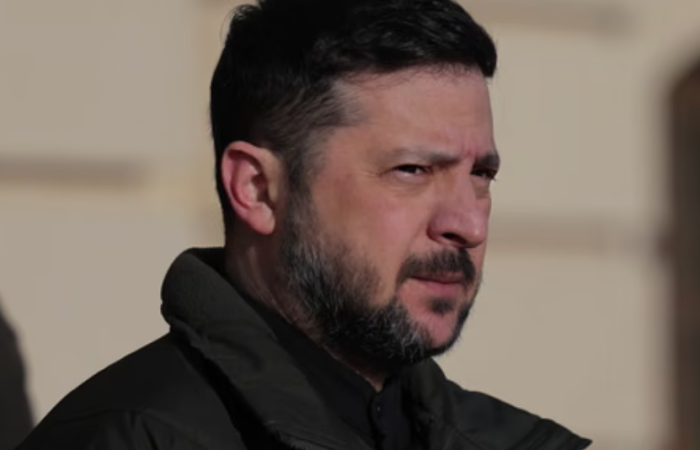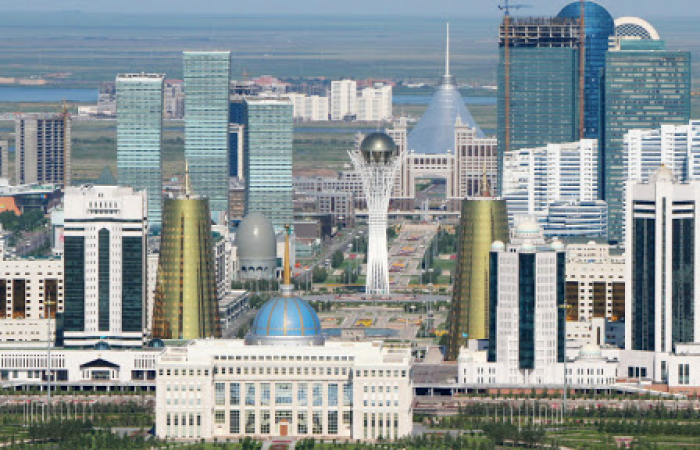"It seems that talks over the future of Nagorno Karabakh have reached an impasse. Azerbaijan claims there will be no Nagorno Karabakh inside Azerbaijan, and Armenians should live as ordinary Azerbaijani citizens. At the same time, those who do not want to accept this option should leave. Armenians of Nagorno Karabakh categorically reject this option, meanwhile stating that they will not leave their homeland", says Benyamin Poghosyan in this op-ed for commonspace.eu
"Currently, it is challenging to offer an option that may more or less satisfy both Azerbaijan and NKR. However, one thing is clear: new large-scale war in Nagorno Karabakh will make long-term peace and stability in the South Caucasus a pipe dream. Thus, all actors interested in a stable region should message Azerbaijan that a new war against Nagorno Karabakh is not the best option to move forward. Otherwise, the region will plunge into another decade of instability, destruction, and human suffering", Poghosyan argues.
The situation in and around the self–proclaimed Nagorno Karabakh Republic (NKR) continues to deteriorate. The blockade of the Lachin corridor imposed by Azerbaijan brought the population of NKR to the brink of starvation. Meanwhile, Azerbaijan demands to supply goods to NKR via Aghdam, arguing that it should be the first step towards integrating Karabakh into Azerbaijan. The international community seeks to mitigate the crisis, pushing forward different options.
Russia offered to start supplies via Aghdam first, and, within 24 hours restore supplies via the Lachin corridor. The US calls for immediate opening of both routes, a position reiterated in the Secretary of State's statement on September 10, 2023. The EU calls to open the Lachin corridor, emphasizing that other roads, such as Aghdam, can be opened as a part of the solution, but not an alternative, as was stated by Josep Borrell in his September 9 phone call with Azerbaijani foreign minister. Azerbaijan, in theory, accepted Russian, American, and European suggestions, but with one caveat – the Lachin route should operate f under Azerbaijani legislation, which means there will be no corridor, and the Lachin road will become one of many internal roads of Azerbaijan. NKR authorities argue that no route should be perceived as an alternative to the Lachin corridor, demanding unconditional restoration of supplies via Lachin.
While the international community, Armenia, Azerbaijan, and NKR seek a solution to prevent a humanitarian catastrophe, domestic political upheaval happened in Nagorno Karabakh. After weeks of speculation, President Arayik Harutyunyan resigned, and NKR Parliament on September 9 elected a new President, Mr. Samvel Shahramanyan, who previously served as the Director of the National Security Service in 2018-2020 and was appointed as the Secretary of the Security Council in January 2023. Harutyunyan's step was criticized by some representatives of the ruling elites of Armenia, who argued that it was a forced resignation imposed by former NKR Presidents and former NKR state Minister Ruben Vardanyan, who remained in Nagorno Karabakh after his resignation in February 2023. Vardanyan increased his criticism of Nikol Pashinyan ahead of the September 17 mayoral elections in Yerevan, offering his full support to one of the opposition parties that takes part in the elections.
However, behind the humanitarian catastrophe triggered by the closure of the Lachin corridor, a more significant crisis looms over Nagorno Karabakh. Azerbaijan overtly expresses its frustration with the negotiations on a peace agreement with Armenia. According to Azerbaijani logic, the key result of the negotiations should be the restoration of Azerbaijani sovereignty over the entire Nagorno Karabakh. Azerbaijan argues that the statements of the Armenian Prime Minister about recognizing Nagorno Karabakh as part of Azerbaijan are not enough, as there is no agreement signed and ratified. They also reject Armenia's demands to launch the Stepanakert – Baku dialogue within the international mechanism and provide special guarantees for Nagorno Karabakh Armenians. Baku views this as a deliberate tactic to extend negotiations indefinitely and keep the status quo, which emerged after the 2020 Nagorno Karabakh war.
Meanwhile, even if Armenia agrees to drop its demand to create a special international mechanism for the Stepanakert – Baku dialogue and signs a peace agreement with Azerbaijan without any mention of the rights of Nagorno Karabakh Armenians, this will change few things on the ground. The absolute majority of Nagorno Karabakh Armenians reject any option of living under Azerbaijani jurisdiction, and Armenia's Prime Minister has little influence to force or convince them to do that. Armenia still provides money to NKR, but Pashinyan cannot stop the flow of funds, as it would mean that he is doing the same as Azerbaijan does now, creating a humanitarian catastrophe in Nagorno Karabakh. Moreover, besides money, the Armenian government has no leverage over Nagorno Karabakh Armenians.
Meanwhile, Azerbaijan clearly states that it will not have another 20 years of negotiations to establish control over Stepanakert. From the Azerbaijani perspective, three years, which passed after the 2020 Nagorno Karabakh war, were enough to reach its goal peacefully. If Armenians of Nagorno Karabakh continue to reject integration into Azerbaijan, which means receiving Azerbaijani passports, allowing circulation of Azerbaijani currency, and many other things, Azerbaijan will have no other option but to forcefully restore its territorial integrity.
In recent weeks, Azerbaijan has concentrated significant troops along the Nagorno Karabakh – Azerbaijan line of contact, and Azerbaijani experts and officials are overtly speaking about the Azerbaijani right to launch a military operation to destroy the NKR defense army, which they call illegal armed units, and to dissolve NKR state institutions. Simultaneously, Azerbaijani troops are concentrated along several border regions of Armenia – Gegharquniq, Vayots Dzor, and Syunik. Thus, Azerbaijan is ready to launch attacks against NKR and Armenia, perhaps using small–scale attacks on Armenia to divert the international community's attention from large-scale incursion into Nagorno Karabakh. Meanwhile, the newly elected President of NKR stated in the Parliament that despite Azerbaijani claims Nagorno Karabakh conflict is not settled, Nagorno Karabakh should have a relevant status and direct transport communication with Armenia via the Lachin corridor.
It seems that talks over the future of Nagorno Karabakh have reached an impasse. Azerbaijan claims there will be no Nagorno Karabakh inside Azerbaijan, and Armenians should live as ordinary Azerbaijani citizens. At the same time, those who do not want to accept this option should leave. Armenians of Nagorno Karabakh categorically reject this option, meanwhile stating that they will not leave their homeland. The big unknown is the possible actions/inactions of Russian peacekeepers deployed in Karabakh in case of large-scale Azerbaijani incursion. Currently, it is challenging to offer an option that may more or less satisfy both Azerbaijan and NKR. However, one thing is clear: new large-scale war in Nagorno Karabakh will make long-term peace and stability in the South Caucasus a pipe dream. Thus, all actors interested in a stable region should message Azerbaijan that a new war against Nagorno Karabakh is not the best option to move forward. Otherwise, the region will plunge into another decade of instability, destruction, and human suffering







